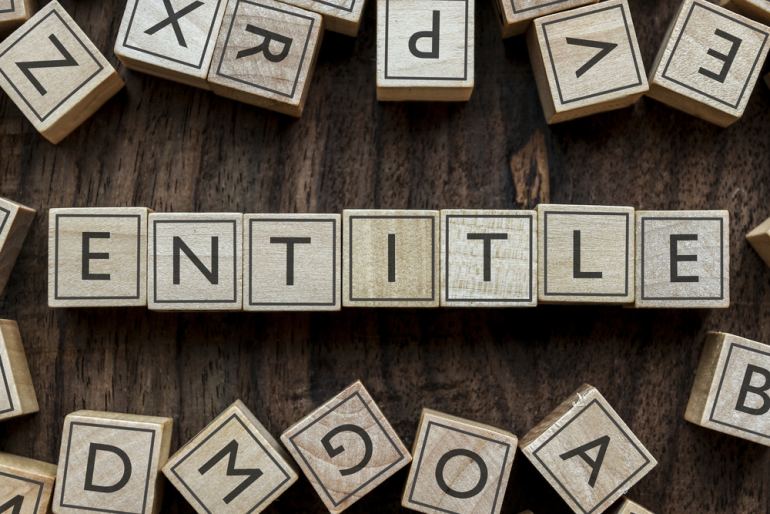
The Entitlement Conundrum: Exploring the Employer/Employee Debate
In the modern workplace that we are living in, a complex dance between employers and employees is unfolding—one that revolves around the enigmatic concept of entitlement. The notion of entitlement has sparked heated debates, with both sides arguing their perspectives fervently. But what exactly is entitlement, and how does it influence the dynamics between employers and employees? Let's try to get into the heart of this debate, unearthing context, examples, statistics, quotes, and psychological insights that promise to unravel fascinating "ah-ha" moments.
Defining the Entitlement Phenomenon:
Entitlement, often characterized as a belief in deserving special privileges or treatment, can be experienced in various ways within the workplace. Employees might assert their right to promotions, flexible schedules, or perks, while employers may exhibit entitlement by expecting persistent and relentless loyalty and dedication.
The Employee's Perspective:
From an employee's standpoint, the quest for entitlement is often rooted in a desire for recognition, fairness, and work-life balance. Modern employees, driven by evolving societal values often look for workplaces that value their contributions and acknowledge their diverse needs.
Statistics That Speak Volumes:
A study by the Society for Human Resource Management (SHRM) recently found that employees who perceive fairness and recognition from their employers tend to be more engaged and motivated. Furthermore, the 2020 Gallup report indicated that engaged employees are 21% more productive than their disengaged counterparts.
Psychological Insights: The Power of Perception:
Psychology plays a very big role in shaping entitlement perceptions. The Equity Theory suggests that individuals compare their input (effort, commitment) to the outcomes (rewards, recognition) they receive. When the balance is perceived as inequitable, there’s a chase that a sense of entitlement can arise.
Examples from the Trenches:
Let’s consider Sarah, a high-performing marketing professional who consistently delivers exceptional results. When a coveted promotion goes to a colleague with less experience, Sarah's entitlement radar flares up. She feels her efforts warrant recognition, and the absence of this recognition leads to frustration.
On the flip side, let’s consider the case of John, an employer who started a tech startup from scratch. As the company thrived, John expected unwavering loyalty from his employees. When some expressed interest in remote work, John's response was marked by a sense of entitlement to their physical presence in the office.
The Employer's Dilemma:
Employers, too, grapple with entitlement, often stemming from a need for control, investment, and risk-taking. The drive to create a thriving business often leads employers to believe that their efforts justify a degree of entitlement over their employees' commitment.
Quotes that Echo Through Time:
Mark Cuban once remarked, "Everyone is passionate about something. Usually more than one thing. We are born with it." This sentiment highlights the importance of recognizing individual passions and fostering a sense of purpose within the workplace to mitigate entitlement-driven conflicts.
Navigating the Middle Ground:
Creating a harmonious employer-employee relationship demands a delicate balance. Cultivating an organizational culture that emphasizes open communication, recognition, and fairness can moderately smoothly defuse entitlement-related tensions.
Mindful Leadership:
It is necessary that leaders embody mindful leadership, recognizing the humanity of both employers and employees. When employees perceive leaders as genuine, empathetic, and transparent, they are more likely to embrace shared goals.
Embracing a Growth Mindset:
Carol Dweck's concept of a growth mindset advocates for continuous learning and adaptability. It encourages both employees and employers to adopt this mindset and curb entitlement tendencies, fostering an environment that thrives on collaboration and progress.
The Evolution of the Workplace
In the grand tapestry of the employer/employee sense of entitlement debate, one truth stands clear: the modern workplace is in a state of evolution. As values, expectations, and societal norms shift, so must our approach to managing entitlement. Recognition, open dialogue, and mutual understanding are the threads that weave a harmonious fabric, empowering both sides to contribute their best selves to the collective endeavor.
The "ah-ha" moments that emerge from understanding entitlement lie in the recognition that, beneath the rhetoric, both employers and employees share common aspirations: to be valued, recognized, and to contribute meaningfully. By navigating this intricate dance with empathy, adaptability, and a shared commitment to growth, the employer-employee relationship can flourish into a harmonious synergy that defines the modern workplace of tomorrow.



Leave a comment
Make sure you enter all the required information, indicated by an asterisk (*). HTML code is not allowed.